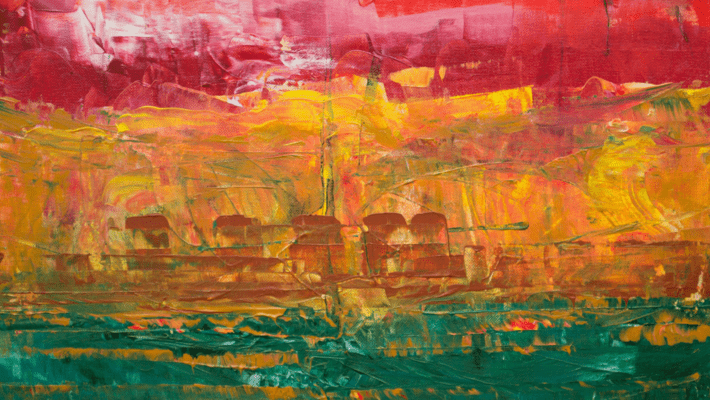
How is Cannabis Used in Rastafarianism?
Published on 2/6/22
One significant aspect of cannabis is an aspect of independent culture, the religion of Rastafarianism. If you barely understand the meaning of a Bob Marley album, don't fret: Rastafarianism isn't often well-known in the United States, or indeed much of the world, on a much deeper level than reggae and dreadlocks. Yet Rastafarian beliefs are complex, and their use of cannabis is more complicated than a simple way to unwind after a long day at work. What is Rastafarian religion, and how does it incorporate cannabis?
What's in a Name
 Unsplash
UnsplashThe term Rastafarianism, also known as Rastafari, encompasses many people with different beliefs. While the Rastafarian god Jah (taken from the Hebrew Yahweh) is based upon the Christian concept of a monotheistic God, there is no unified authority in the same manner as Catholics have the pope. For many Rastafari, religion is not bound by specific rules: while Jah exists within all of us, there are many ways to celebrate this faith, and no one exists to tell you to stop.
Rastafarianism is Afro-centric, meaning that it is based upon concepts of African culture, history, and ideologies. Born in the 1930s, it was heavily tied to the Ethiopian emperor Haile Salassie, some Rastafari worship Salassie as an incarnation of Jah. This is a reflection of Jamaica's immense African heritage; like the United States or Brazil, millions of enslaved Africans arrived on Jamaica's shores in the colonial era, and their descendants have created a cosmopolitan, creole culture based on many different influences.
There are about 1 million Rastafari in the world today, primarily in Jamaica. Regions with a sizeable Jamaican expat community like New York City also have Rastafari groups, organizations and meetings. Different sects have popped up, some with very different views on everything from diet to gender roles. Rastafarian prayer is often communal, with group practices called "levity." There is usually no church for a Rasta meeting, and instead, participants gather at a home or group center.
Growing and Healing
 Unsplash
UnsplashMany religions have aspects of nature and wellness that are core to their central identity. Even our holidays in the 21st century are closely tied to aspects of the natural world, including the placement of Christmas so near Winter Solstice or Easter at a time of spring's rebirth. Rastafarianism is no different, and in the culture, cannabis is seen as a powerful medicine capable of healing the body and soul. Our own perceptions of cannabis are quickly following suit as more and more health experts realize the value of medical cannabis, yet Rastafari take it a step further.
Like many other aspects of Jamaican culture, cannabis use is a reflection of centuries of slavery and inequality. Blacks of African descent often smoked cannabis as a way to escape the miseries of racism, poverty, and inequality on an island where most wealth is in white hands, despite being a small percent of the overall population. Jamaica outlawed cannabis in the 20th century, just as the US did, and just as in the US, smoking cannabis in Jamaican culture became a way to fight back against an unjust law. Since cannabis had been prevalent in Jamaica long before drug laws existed, with records indicating it was consumed as tea for medicinal purposes, Rastafarianism adopted this plant as a way of creating an identity. Weed in Rastafarianism is encouraged, in part due to Biblical scripture about growing plants, such as Exodus 10:12, "Eat every herb of the land."
That's not to say that Rasta marijuana is to be used with all the forethought of a college student trying out a new bong. Quite the opposite: smoking for the express purpose of getting high is frowned upon in Rastafarianism due to the belief that cannabis should be used in rituals to create social bonds. During "reasoning sessions," Rasta adherents may smoke (or eat or vape) cannabis after saying a prayer to indicate their devotion and faith. During these sessions, Rasta may debate or negotiate an issue in their community or pertaining to the world writ large to develop a mutually beneficial solution for all their congregation. This religious use means that it is possible to get a religious exemption against cannabis laws in some places, provided you can prove you are a member of the faith.
Famous Rasta
 Unsplash
UnsplashThe most famous member of the Rastafarian religion, and indeed the most famous person to ever hail from Jamaica, was reggae singer Bob Marley. Marley converted to Rastafarianism in the late 1960s. At about the same time, he began to gain international fame. Never shy about cannabis use or promotion, Marley advocated for marijuana legalization and reform, calling it a sacred herb best used to aid meditation. "When you smoke herb," he said, "herb reveal itself to you. All the wickedness you do, herb reveal it, your conscience, show yourself up clear. Is only a natural thing and grows like a tree."
What are some of your favorite nicknames for marijuana, including home-grown nicknames? Have you ever participated in another culture's use of cannabis? Let us know in the comments below if you have any stories or experiences yourself.
